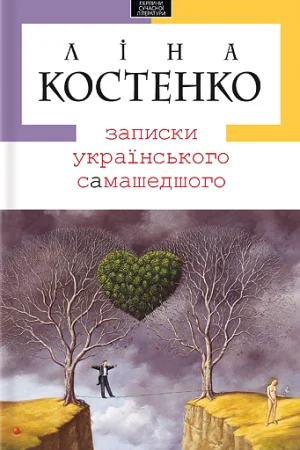 Notes of a Ukrainian hermit
Notes of a Ukrainian hermitBuy Ukrainian Books / Notes of a Ukrainian hermit
Buy Book "Notes of a Ukrainian hermit" in Ukrainian
$27.95
Free Shipping Worldwide
for orders over $4999

Записки українського самашедшого
Ліна Костенко
Lina Kostenko
Notes of a Ukrainian hermit
Discover the Magic of “Selected Fairy Tales” by Hans Christian Andersen
If you are looking to buy “Selected Fairy Tales” in Ukrainian, you have come to the right place. This collection, crafted by the beloved author Hans Christian Andersen, is a timeless treasure that captivates readers of all ages.
Why You Should Buy “Selected Fairy Tales”
- Timeless Stories: Each tale is rich in lessons and moral values.
- Beautiful Illustrations: Enjoy stunning imagery that accompanies the text.
- Cultural Significance: These stories represent a vital part of Ukrainian literary heritage.
- Language Learning: A wonderful resource for those learning Ukrainian or wanting to improve their skills.
- Emotional Depth: Experience a range of emotions, from joy to sadness, through engaging narratives.
Main Stories and Milestones
- The Ugly Duckling – A heartwarming tale about transformation and self-acceptance.
- The Little Mermaid – A story that explores love, sacrifice, and longing.
- The Emperor’s New Clothes – A satirical take on vanity and pride.
- The Princess and the Pea – A whimsical narrative that highlights true nobility.
- The Snow Queen – An adventurous journey filled with friendship and bravery.
By choosing to buy “Selected Fairy Tales” by Hans Christian Andersen in Ukrainian, you support not only your reading pleasure but also a greater cause. From each purchase, we donate to the Ukrainian army, making your choice meaningful.
Our Commitment to You
We pride ourselves on offering best prices and good discounts on our selection. Our shipping is fast and reliable, with options to ship directly from Kyiv and Lviv. Additionally, we provide assistance in searching for and purchasing rare books from Ukraine.
We accept various payment methods, including PayPal, Visa, Mastercard, and other banking cards. Enjoy worldwide shipping with Ukrpost, USPS, UPS, and DHL.
“`Additional info
| Weight | 0.4 kg |
|---|---|
| Year | |
| Cover | |
| Pages count | 416 с. |
| Page size | 130 |
| Original title | Записки українського самашедшого |
| Author |
Related Categories
31 reviews for Notes of a Ukrainian hermit
4.55
/5Based on 31 rating(s)
Customer's reviews
Sort by
-
s l
It’s a great book that helps you see Ukraine at ground zero through the eyes of one citizen. Despite the fact that it is quite gloomy, it was useful for me to understand what the country was like 20 years ago.
Lina Kostenko touched upon a very difficult topic of Ukraine’s political turmoil at the beginning of the millennium. The story is told by a man who, along with the problems of Ukraine, is also experiencing personal difficulties with his work and family. He keeps a kind of diary, where he writes down his own judgments about various events in Ukraine and the world, putting them through his own perception.
The book is difficult to read because of its general atmosphere of depression and a certain hopelessness. The narrator, who took part in the Revolution on Granite, is very painful to perceive that all his efforts have come to nothing in the early noughties. The book covers the murder of Gongadze and the investigation (or rather the lack thereof), the pan-Armenian alliance with Russia and the latter’s interference in Ukraine, Kuchma’s scandalous policies, Tymoshenko’s constant arrests, the political battle between Yushchenko and Yanukovych, the war in Iraq, terrorist attacks, catastrophes, and a host of other things that were relevant at the time.
The book shows how democracy, statehood, the Ukrainian language, and Ukrainian citizens were treated at the time. How the people endured it because they could not or did not want to do anything about it. A significant quote from the beginning of the book is: “The Front of National Dignity is held by the dead,” which indicates the passivity of the society of that time, which did not want to fight, as their descendants did. This is what irritates the narrator the most. Passivity and helplessness. The book ends with the Orange Revolution, where “the line of defense is finally held by the living.”
Overall, I really liked the book because it came to me at the right time. Now, during the war, it is very useful to read it to understand the origins of Ukraine’s misfortune and Russia’s untied hands. As the book says: “On the ruins of the empire, our Independence arose. A blue bird with broken wings, almost to death pecked by a two-headed eagle.”
Now the eagle is trying to bind our blue bird again, but it will not succeed, because the front line of national dignity and the existence of the state is held by the living.
April 9, 2022Verified PurchaseHelpful?
Reply -
galarebizant
All the events in the novel are told from the point of view of a 35-year-old Kyiv programmer. The events begin in 2001, and the man records everything and shares his impressions throughout the entire period up to the beginning of the Orange Revolution. World events and Ukraine against their background.
This man was one of those students who were on strike on the Independence Square in ’91, fought for independence, met his wife there, and his father was a Sixties man. The independence that we got is not exactly what they fought for, or rather not at all! The Orange Revolution brought new hope…
January 27, 2022Verified PurchaseHelpful?
Reply -
Anastasia Galt
This book tells the story of the years 2000-2004, and makes us draw parallels with the present. Drawing such parallels, it seems that nothing changes over the years. The same news stories, the same words and actions of Ukrainian politicians, the same “Ukrainian” politicians, the same information war that has been going on since at least 2000, and which became hybrid in 2014.
The protagonist is a programmer who lives in Kyiv with his wife, son, and mother-in-law, works, takes care of his family, and worries about his family, about Ukraine, about the future of Ukraine, and about his future in Ukraine.
“Notes of a Ukrainian Samashed” is a diary of the protagonist, in which he writes about events in the world, in his life, in Ukraine, and about his relationships with his family. This work is about patriotism, about language, about what worries him and why there is a war in Ukraine.
Reading Lina Kostenko’s first prose work, one becomes very sad because little has changed in the 30 years since Ukraine’s restored independence, because the Revolution of Dignity was similar to the Orange Revolution at the beginning, and the Orange Revolution to the Revolution on Granite. The government ignores the people – people come to the Maidan – they are dispersed – they stand to the last = what is called a revolution.
It’s hard to read. But…
It is definitely worth reading and thinking about, drawing parallels and making conclusions. And to learn from other people’s mistakes in history, and not to make them again and again.
August 23, 2021Verified PurchaseHelpful?
Reply -
Anton Chisnikov
For me personally, Lina Kostenko is a rather controversial figure in Ukrainian literature. On the one hand, we are accustomed to her image as a “sixties woman” and “the voice of the nation,” although her fate was much more fortunate than that of other dissidents such as Horska, Stus, Symonenko, Dziuba, or Sverstiuk. She was not imprisoned, she remained alive and well. In the 1980s, she was even published and awarded the Shevchenko Prize. Therefore, I find the suspicions of some researchers about her collaboration with the USSR’s punitive authorities credible. But Lina Kostenko’s possible flirtation with the Soviet authorities cannot deny her outstanding talent.
Her only prose novel is like a mirror of our society. The events described here are almost 20 years old, but some passages seem to have been deliberately written for our 2020.
“…It is about the fate of an entire state-some are freezing in tents, while others don’t care…”
“…This is our Ukrainian Themis – the Greek one is blindfolded, ours is closed…”
“…A person with a past should not run for president. A person with a future should run for president…”
“…I can feel with my skin how total miserliness is deliberately instilled in people, turning them into a mass. The masses don’t need art, the masses don’t need culture-the masses need to be instilled in the subconscious, and they will go in the direction they are projected to go. Sometimes it seems to me that there is some kind of think tank working for the self-destruction of this state, not so much by the hands of its enemies as by the efforts of its own idiots…”
“…Porn, pandering, and swearing are being cultivated. We now have such freedom, as if a garbage disposal had burst. Freedom of rudeness, freedom of ignorance, freedom of hatred for Ukraine. Everything that is vile and malevolent is basking in the sunshine of our democracy. Ukraine is ruled by people who do not love it and who are alien to it…”
“…The eternal paradigm of history: some people fight for freedom, and others come to power…”
“…Freedom, equality, and fucking – this is the paraphrase of ochlocracy. The aesthetics of the nouveau riche. The dictates of money bags. Moral exhibitionism of assholes. This is how show business will flourish. This is how new generations will lose the meaning of life…”
But I find something optimistic and life-affirming in the unpleasant text of this novel:
“…The state is me, not what they did to it. And the nation is also me. And if there is an anti-nation in this nation, then please do not confuse it. Because I belong to the nation that I chose and that chose me-a beautiful and noble nation…”
This book is heavy, sharp, and true. And, unfortunately, it is still very relevant.
December 19, 2020Verified PurchaseHelpful?
Reply -
Ira Svidnitskaya
Why a debut? “Notes of a Ukrainian Hermit is Lina Kostenko’s first prose work. It is her debut as an author of prose, not just beautiful poetry.
This book can be disassembled into quotes. Sharp, painful, they burn the consciousness, destroy stereotypes with their truthfulness and frankness. It should be read in doses, but I want to read it at once. Open it and don’t stop, but simply absorb the entire flow of thoughts and ideas that this brilliant novel contains.
“The language is nightingale, but they are chirping the devil knows what”
This book broke something in me.
It made me speak Ukrainian on principle, even when the other person speaks Russian.
It made me feel ashamed of Google queries in Russian.
She made me use the word “hryvnia” and never say “I bought it for 100 rubles” because we simply don’t have that kind of currency!
She made me not to buy clothes with inscriptions in Russian as a matter of principle.
No, it’s not because of hatred for Russia, or the military conflict, or deliberate patriotism, or anything else. It’s because of the banal respect for what is traditional and national! Not fashionable, but exactly OURS! Through self-awareness, social self-identification. It may be strange, but our subconscious is simply overwhelmed with all this “garbage”, compromises, second-rate, imitation.
It was so strange when a grandmother from Vinnytsia told us about her granddaughter: “We speak Russian at home. It was she who went to kindergarten and picked it up from these ATO soldiers (i.e., their children)…” Indeed, in our country, Ukrainian is spoken only by ATO soldiers, their children, and Banderites and Khokhuls. Even in Vinnytsia, most people speak Russian in everyday life.
“In all countries, languages are like languages, a tool of communication, but in ours it is an alienating factor. A deafening virulence surrounds our language, even now, in our own country. We are already like a national minority, everyone can offend you. I can’t take a step, I attract attention everywhere, sometimes even positive attention, but it doesn’t make it any easier. Because there is something unnatural and humiliating in the very nature of this attention. A person speaks their native language, and people look back at them (…) Ukraine is a reservation for Ukrainians. No Ukrainian feels like he belongs in his own country. He is a stranger here by the very fact of using his language.”
This is the bitter truth!
December 15, 2020Verified PurchaseHelpful?
Reply

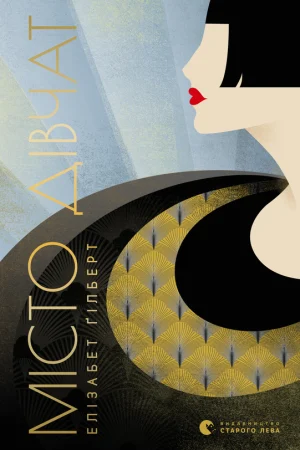
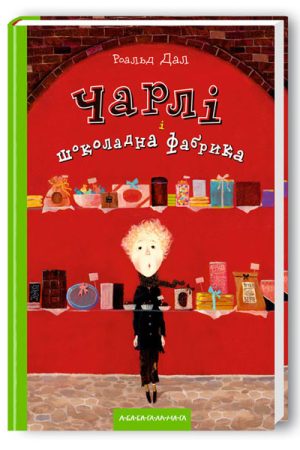
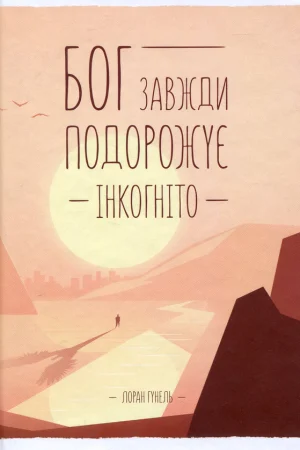
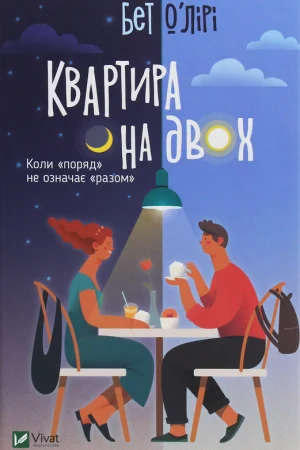
Leave feedback about this